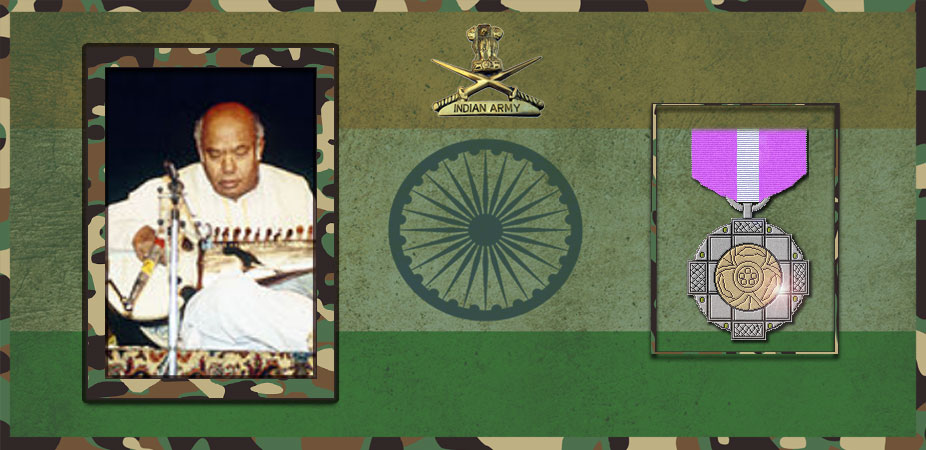Let's salute to our Indian Army together, We are proud to be Indian.
Let's salute to our Indian Army together, We are proud to be Indian.

Ali Akbar Khan (14 April 1922–18 June 2009) was a Hindustani classical musician of the Maihar gharana, known for his virtuosity in playing the sarod. Trained as a classical musician and instrumentalist by his father, Allauddin Khan, Khan also composed several classical ragas and film scores. He established a music school in Calcutta in 1956, and the Ali Akbar College of Music in 1967, which moved with him to the USA and is now based in San Rafael, California, with a branch in Basel, Switzerland.
Khan was instrumental in popularizing Indian classical music in the West, both as a performer and as a teacher. He first came to America in 1955 on the invitation of violinist Yehudi Menuhin and later settled in California. He was a Distinguished Adjunct Professor of Music at the University of California, Santa Cruz.
Khan was accorded India’s second highest civilian honour, the Padma Vibhushan, in 1989.Nominated five times for the Grammy Award, Khan was a recipient of the MacArthur Fellowship and the National Endowment for the Arts’s National Heritage Fellowship.
Ali Akbar Khan was born in the village of Shibpur, Nabinagar Upazila, Brahmanbaria, in present-day Bangladesh, (then Comilla, East Bengal), to renowned musician and teacher, Allauddin Khan and Madina Begum. Soon after his birth, Khan’s family returned to Maihar (in present-day Madhya Pradesh, India) where his father was the primary court musician for the Maharaja of the princely state.
From an early age Khan received training from his father in various instruments as well as vocal composition, but finally gravitated towards the sarod. Allauddin was a perfectionist and a strict taskmaster, and Khan’s lessons started before dawn and often lasted 18 hours a day. Khan also learned to play the tabla and the pakhavaj from his uncle, Aftabuddin Khan, who he visited at Shibpur. During this period he met several prominent musicians, such as the sarodist Timir Baran and flautist Pannalal Ghosh, who came to study with his father in later years he was joined in his lessons by his sister Annapurna Devi, who became an accomplished player of the surbahar, and fellow student Ravi Shankar. Shankar and Annapurna Devi were married in 1941.
Of his training on the sarod, he wrote:
If you practice for ten years, you may begin to please yourself, after 20 years you may become a performer and please the audience, after 30 years you may please even your guru, but you must practice for many more years before you finally become a true artist—then you may please even God.
Ali Akbar Khan married three times (first Zubeida Begum, then Rajdulari Khan Sahiba, and last one Mary Khan), and is survived by eight sons and four daughters. Six of his children and one grandson are musicians: Aashish Khan Debasharma (b 1939, sarod), Dhyanesh Khan (1941–90; sarod), Ameena Perrera (Sitar), Pranesh Khan (tabla), Rajesh Khan (sarod), Alam Khan (b 1982, sarod), Manik Khan (Sarod); and his grandson, Shiraz Ali Khan (sarod)
Khan was awarded the Padma Bhushan in 1967 and the Padma Vibhushan in 1989, among other awards. He received a MacArthur Fellowship in 1991, the first Indian musician to receive the so-called “genius grant”. In 1997, Khan received the National Endowment for the Arts’ prestigious National Heritage Fellowship, the United States’ highest honour in the traditional arts. Khan has received five Grammy nominations.